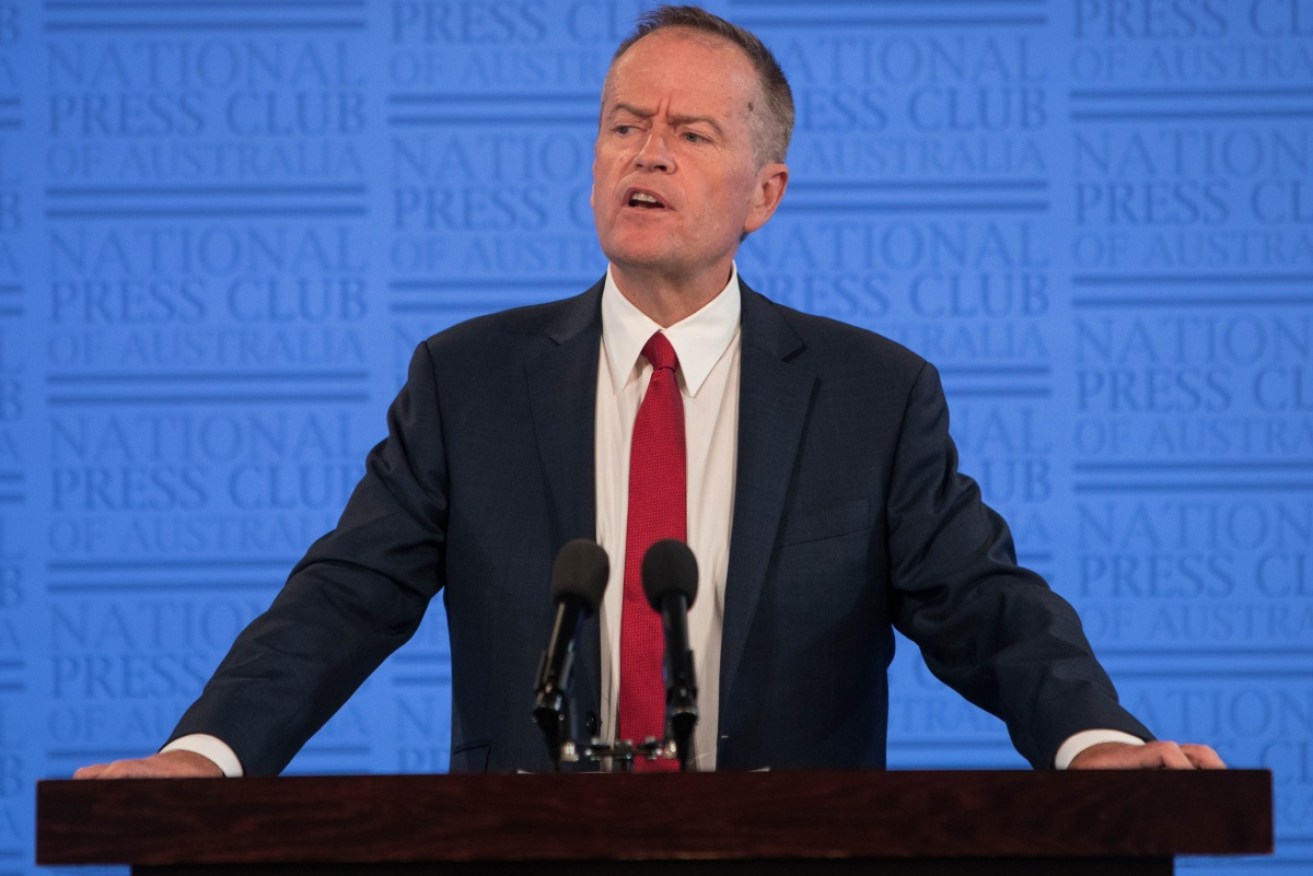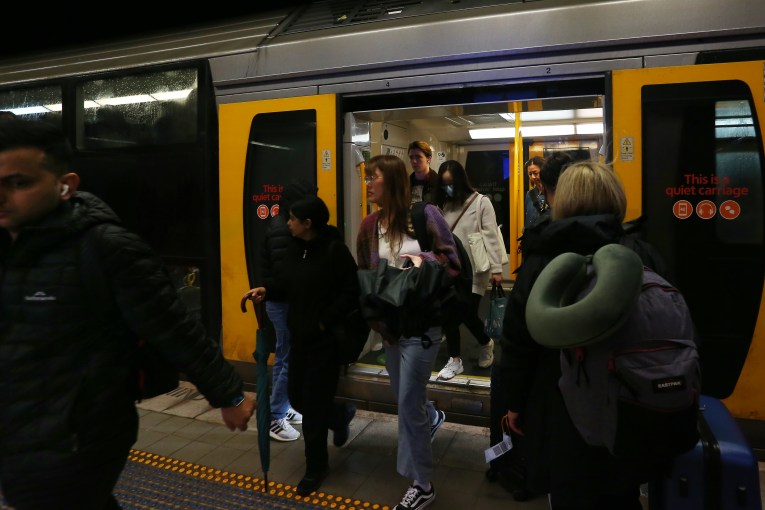Malcolm Turnbull and Bill Shorten prepare for their three major challenges


The Opposition Leader is expected to push for changes to negative gearing, dividend imputation and capital gains tax. Photo: AAP
That whistling sound you hear is being made by the winds of time rushing past as we’re propelled into the huge political year that is 2018.
Federal Parliament hasn’t even resumed – that happens on Monday – but political combatants were already out in force this week laying out their claims for voters’ hearts and minds.
The pitches aren’t just about the next federal election, which could take place from August this year. There are actually three impending electoral tests driving the frenzied political activity.
Opposition leader Bill Shorten took the early initiative, fronting political journalists at the National Press Club on Tuesday to make a pitch carefully crafted for voters feeling the pressure of increasing everyday costs paired with sustained low growth in wages.
While Mr Shorten was later accused of mimicking the UK Labour leader Jeremy Corbyn for using the same rhetoric about a “left-behind society”, it shouldn’t be forgotten that Pauline Hanson uses a similar tactic, appealing to voters who feel economically and socially abandoned by Labor and Coalition governments.
In addition to his barbeque-stopping commitment to establish a National Integrity Commission, Mr Shorten talked about his plan to ensure no Australian is left behind.
I’m going to spend 2018 explaining to people why I think we can do better.”
Bill Shorten
“I’m going to spend 2018 explaining to people why I think we can do better,” Mr Shorten explained, “by restoring faith in the way that government works, by restoring faith in an economy which works for all people, for all Australians, and by taking on the hard generational issues, even if they are politically difficult, even if it means confronting scare campaigns or vested interests.”
This is about making “the economy work for working Australians”, by doing things such as restoring Sunday penalty rates, fixing enterprise bargaining and giving private health insurance companies a stern talking-to.
Mr Shorten also recommitted to a 50 per cent renewables target by 2030 and gave the strongest indication yet that Labor would oppose the Adani coal mine.
In contrast to Mr Shorten’s focus on Australians who’ve fallen behind or are at risk of doing so, Mr Turnbull’s first speech of the year focused on those who want to get ahead; the so-called aspirational voters.
Speaking to Liberals and local business types at a fund-raising lunch in the regional Queensland town of Toowoomba on Wednesday, the PM said he was working “to create more opportunities, greater prosperity and economic freedom for all Australians” by building a stronger economy.
Mr Turnbull argued that while 2016-17 were years of reform, 2018 would be the year that Australians benefit from those reforms. Citing the International Monetary Fund, the PM claimed the resulting strong economy would “give every Australian the opportunity to pursue their dreams” and that company tax cuts would increase the investment that delivers “more and better paid jobs”.
And so the scene has been set for the next federal election, the most distant of the electoral tests that shaped political developments this week.
Whether it takes place this year or next, the election campaign will heavily feature the two sides of economic rationalism. Labor will vow to protect voters from the worst effects while the Coalition (or at least the Liberals) will vow to make the benefits more easily accessible to everyone.
These themes will also be played out during the medium-term electoral tests that are facing Labor and the Coalition. These are the by-elections arising from the dual-citizenship imbroglio, which will likely be held during the first half of 2018.
Following the resignation of Labor’s David Feeney this week, the first of these contests is likely to be for the Victorian seat of Batman, which could fall from Labor’s hands into the Greens’.
That explains Bill Shorten’s comments on the Adani coal mine – which is strongly opposed by the Greens – and renewable energy. However an anti-Adani position might not be as useful for Labor if it has to face by-elections in regional Queensland where the project is seen favourably as a job creator.
And then there is the immediate electoral test facing the two leaders. The first Newspoll of 2018 was conducted this week and over the weekend, and is expected to be published late on Sunday or Monday night.
Malcolm Turnbull’s rallying cry to aspirational voters this week was aimed at delivering an uptick in the Coalition’s primary vote, at least in part to keep the Abbott forces at bay. Similarly Bill Shorten’s promise to establish a National Integrity Commission was an effort to improve his favourability with those voters who are not ready to trust him as an alternative PM.
Both men will likely be staying up on Sunday night, waiting for Newspoll to drop.
I’m going to spend 2018 explaining to people why I think we can do better.
Bill Shorten








